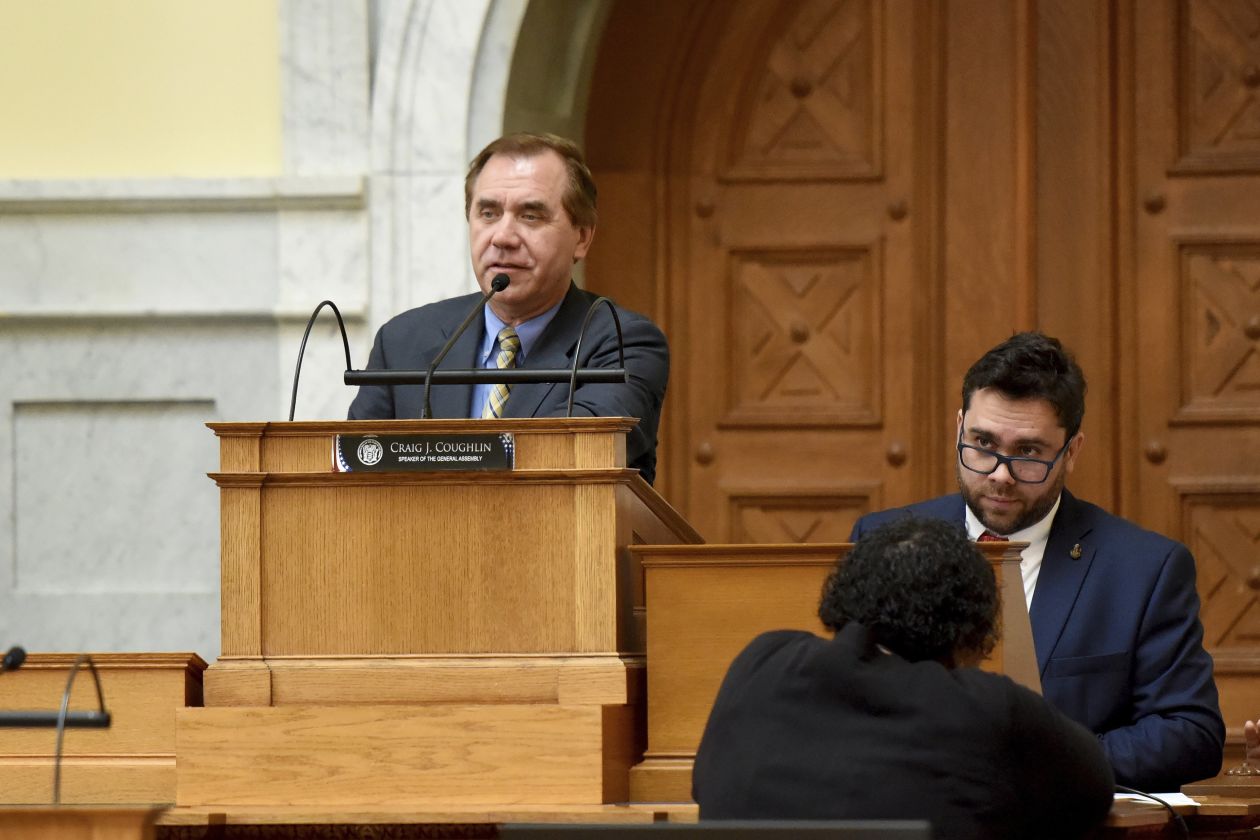Most workers would get to $15 by 2024; farmworkers and others will reach $15 by 2029
The top Democrat in the New Jersey General Assembly wants to raise the minimum wage to $15 by 2024, with some exceptions, according to legislation introduced Thursday.
New Jersey Assembly Speaker Craig Coughlin is proposing phasing in the minimum wage to reach $15 by 2029 for other workers, including those younger than 18 years of age, farmworkers, seasonal workers and employees who work at businesses with fewer than 10 employees.
Under the legislation, employers starting in 2020 would be able to pay at least 90% of the minimum wage for on-the-job training positions and similar roles for the first 80 hours of employment.
“This bill addresses the issue of helping New Jersey’s working poor be better able to afford living in the state, while taking into consideration the concerns of the state’s valued small-business community,” Mr. Coughlin said in a statement. “Raising the minimum wage will not only lift up the current generation of low-wage workers but ensure fairness for future generations and tackle issues of hunger and inequality.”
The assembly’s labor committee will take up the bill on Monday.
The state’s current minimum wage is $8.60 and will increase to $8.85 on Jan. 1. The rise is tied to inflation.
Gov. Phil Murphy, a Democrat, made raising the minimum wage a signature priority on the campaign trail last year. The Legislature, controlled by Democrats, in 2016 passed a minimum wage bill that was vetoed by then-Gov. Chris Christie, a Republican.
But Mr. Murphy, who wants no exemptions in the minimum-wage bill, has been unable to reach a deal with fellow Democratic leaders in the Legislature. Senate President Steve Sweeney, a Democrat, also wants exemptions for teenagers and farmworkers because he has said he fears job losses for these workers.
Mr. Coughlin’s office consulted with Mr. Sweeney’s office on the legislation, according to a person familiar with the bill.
“The speaker’s legislation gives us a working document that will move our efforts to enact a needed wage increase forward,” Mr. Sweeney said in a statement.
A spokeswoman for Mr. Murphy didn’t immediately return a request for comment.
Tom Bracken, president of the New Jersey Chamber of Commerce, said Mr. Coughlin’s proposal was a “good start.” He said he liked that the bill phased in the minimum-wage increase for most workers, making it easier for businesses to manage. But the teenagers, seasonal and farmworkers shouldn’t be included in the bill, even if they are phased in at a slower pace, he said.
“We don’t think it makes sense to have those industries saddled with a $15 minimum wage,” Mr. Bracken said.
The New Jersey Business & Industry Association also has concerns about raising the minimum wage for teenagers, and seasonal and farmworkers. “We do not feel that the proposed exceptions go far enough,” said Michele Siekerka, president of the association.
The minimum wage is one of many areas where the governor has clashed with Democratic leaders. Messrs. Murphy and Sweeney engaged in a protracted fight over the budget this past summer. And the governor and legislative leaders have yet to reach an agreement on legislation that would legalize marijuana, another priority for Mr. Murphy.
Also, Democratic leaders are attempting to push through a constitutional amendment that would overhaul the state’s legislative redistricting process—a proposal that doesn’t have the governor’s backing.
